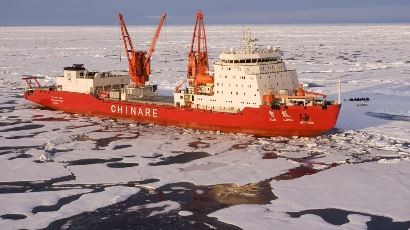China, India and Russia have expressed interest to form a partnership to explore oil and natural gas reserves in the Arctic, a report by Politico, a daily newspaper based in Arlington, Virginia, said.
According to the report, the three countries hinted about potential cooperation in the Arctic exploration during the 13th meeting of Russian, Indian and Chinese foreign ministers in February this year.
In June 2013, a 25-year contract worth around $270 million was signed by China National Petroleum Corporation (CNPC) and Russia's biggest oil producer, Rosneft. The contract is expected to help the Russian company reduce its debt and develop remote fields in the Arctic, the U.K.-based New Statesman magazine reported.
The report by Politico said that China has declared a "near Arctic state," showing its strong interest in the Arctic's rich oil and gas reserves, and reportedly built 12 specialized icebreaker ships that can sail in polar water.
On the other hand, India's less aggressive stance is due to its purely scientific interest in the Arctic. Since New Delhi has been trying to improve its ties with Moscow, Nirmala Sitharaman, India's commerce and industry minister, said that oil and gas are the top priority for India-Russian investment and partnership during the St. Petersburg Economic Forum in June.
The report said that the two countries have successfully cooperated in international gas and oil deals as in the Middle East and Africa, being part of oil consortia in Sudan and Syria.
Garca Ermida of the Centre for Military and Strategic Studies at the University of Calgary, however, said that exploring oil and gas reserves in the Arctic remains a challenging prospect since there is no accurate geological data and reliable communications in the area. In addition, the environment is harsh, with floating icebergs from the polar icecap.



























